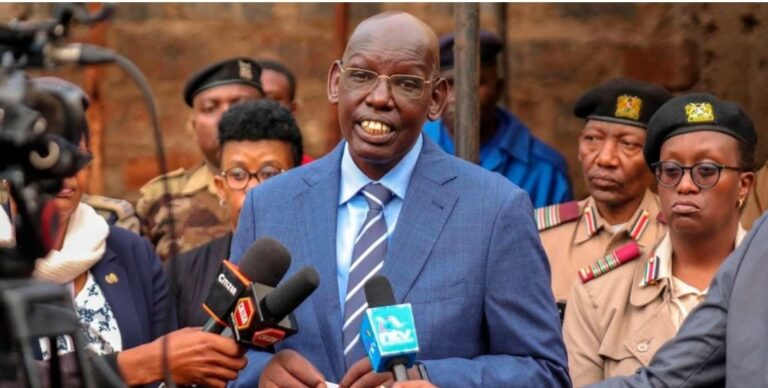The Ministry of Education has acknowledged reports of alleged malpractices during the 2024 Kenya Certificate of Secondary Education (KCSE) examinations. These reports include instances of collusion among candidates, possession of unauthorized materials, and use of mobile phones during the exams.
Such cases not only undermine the credibility of the examination process but also jeopardize the future of students who engage in these unethical practices.
Examination cheating has remained a persistent issue in Kenya’s education system, with evolving methods that challenge existing preventive measures. Collusion, where candidates share answers during exams, often involves complicity from educators or invigilators.
Unauthorized materials, including prepared notes or textbooks, are smuggled into exam rooms despite strict regulations. The possession of mobile phones further complicates the problem, allowing students to access online resources or communicate with external parties during the exams.
These practices not only distort the true capabilities of students but also tarnish the reputation of Kenya’s education system on a global scale.
In light of these challenges, the Kenya Secondary Schools Heads Association (Kessha) has called for reforms to ensure an impartial and credible examination process. Led by National Chairman Willy Kuria, Kessha emphasized the need to minimize external influence on the administration of national exams.
“We want unbiased examination processes and minimized external influence,” stated Kuria, reflecting the association’s commitment to upholding integrity and fairness.
To address these issues, stakeholders propose several measures:
1. Enhanced Security Measures: Strengthening the security of examination materials during transportation and storage to prevent unauthorized access.
2. Strict Invigilation: Training invigilators to detect and prevent cheating, while ensuring they adhere to strict professional standards.
3. Ban on Mobile Phones: Enforcing a zero-tolerance policy on mobile phones in examination centers to eliminate digital cheating.
4. Use of Technology: Leveraging technology, such as biometric verification and surveillance cameras, to monitor examination centers.
5. Promoting Ethical Practices: Introducing programs in schools to foster a culture of honesty and discourage cheating.
The integrity of the KCSE examinations is paramount in ensuring a level playing field for all students and safeguarding the credibility of Kenya’s education system. Addressing cheating and other malpractices requires a collaborative effort from the Ministry of Education, schools, parents, and students. By implementing stricter controls and promoting ethical behavior, the examination process can regain its integrity and restore public confidence.
The reforms proposed by Kessha and other stakeholders serve as a roadmap toward creating a fair and transparent examination system that upholds the principles of meritocracy and excellence.





